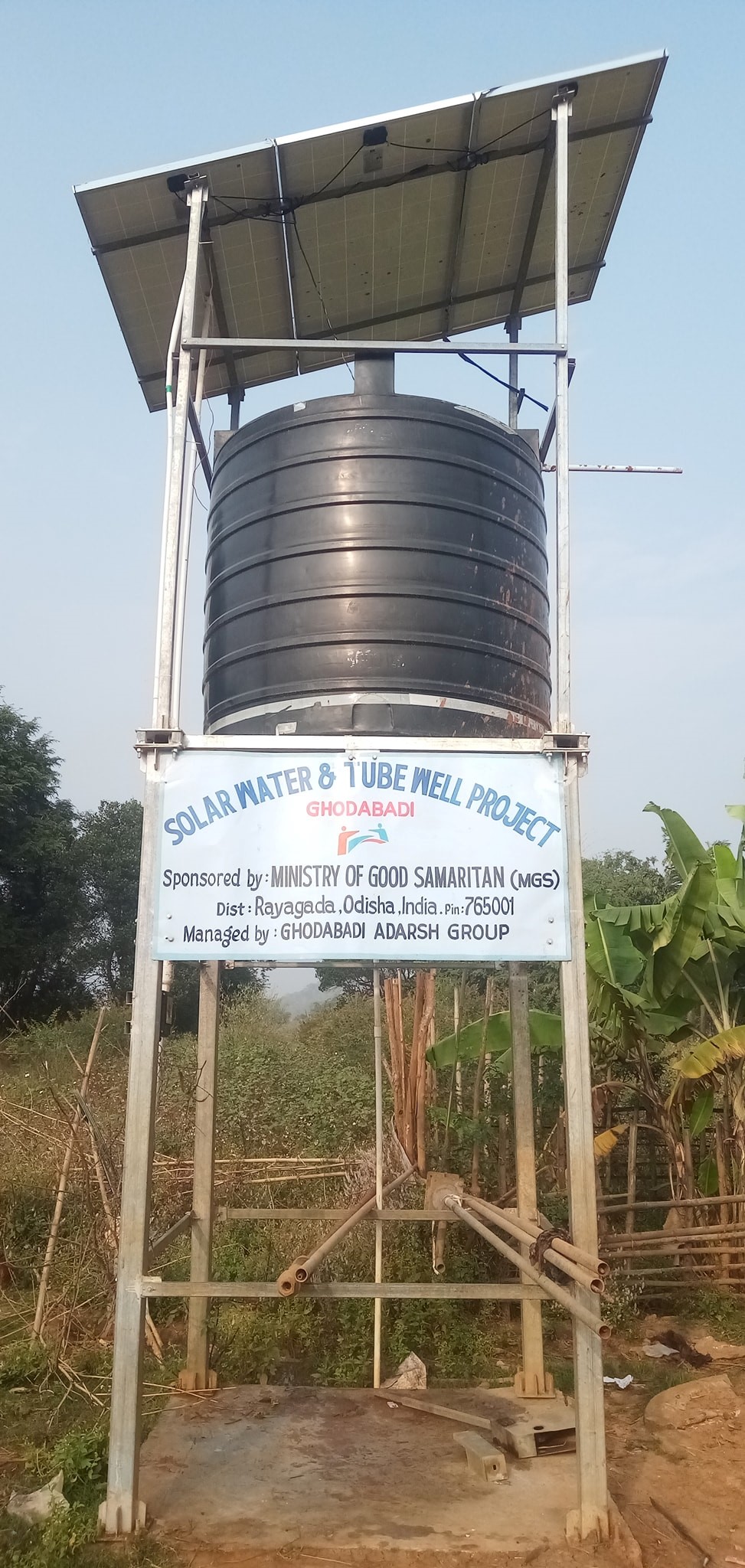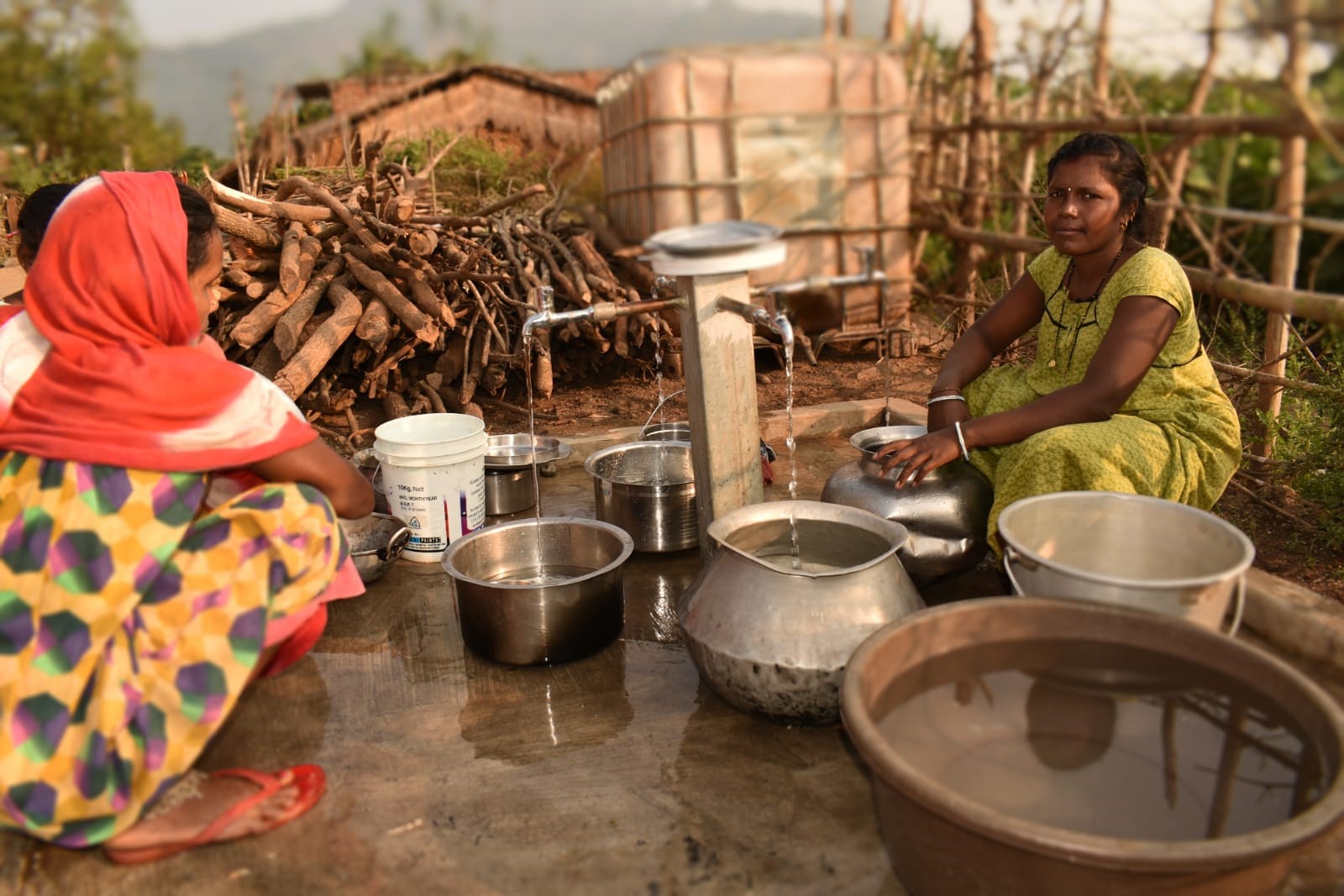A large part of rural India is dependent on hand-operated water pumps, simply called “hand pumps” for their water needs. The hand pumps are low maintenance and work well, but only until the water depth is about 30 meters. Beyond that you would need an electric/diesel pump. But in a remote area, both electricity and diesel would be difficult to find and to maintain.
There are 67 households in Ghodabadi community who were dependent upon the tube wells provided by the Panchayat office, but the tube wells were not providing enough water for the whole community. The problem is aggravated during summers when the water level recedes. Also on some occasions people had to stand in longer queue to fetch water. Manual water fetching from tube well was energy consuming and was difficult for the elders who have to suffer the most.
This solar water program is essentially a scale up of pilot exercises, which has been carried out by MGS in many villages over the years through PHD process and with the support of Outreach International. To begin with a high yield (at least 2000 litres/hour capacity), potable water borewell is selected. It is then fitted with a small solar water pumping system and an elevated tank. The storage tank provides piped water to the doorstep of the households. Best of all, the system does not require any battery and potentially has a long life. In most cases, the bore well already has a hand water pump, which continues to function even after installation of the solar pump.
As part of its commitment towards sustainable development, MGS is promoting the use of renewable energy. In line with this, MGS has made use of solar energy to provide drinking water facility in the Ghodabadi village. The village of Ghodabadi of Rayagada district enjoys 24 hour drinking water thanks to the solar pumps to provide a quick and efficient way of storing and dispensing water. Earlier, the people had to suffer due to the long queue to fetch water, sometimes they used to fetch water from the canal and get sick from various water borne diseases. Now after the establishment of solar water system the people are getting 24/7 clean water and are safe from diseases. Moreover, four water points are made and connected with the solar water tank to provide water at doorstep to the people so that they do not have to stand in queues. This Solar water is being used by the community for drinking, cooking and cleaning purposes, which is benefitting about 289 people.













